Refrigerated medicine should be kept at the appropriate temperature at all times. If left out of the refrigerator for more than two hours, it should be discarded.
Proper storage of medication is crucial in maintaining its potency and efficacy. It is important to adhere to the manufacturer’s recommended storage instructions, which typically require refrigeration. However, there may be times when refrigerated medicine is left out of the fridge for an extended period.
In such cases, it is important to know how long the medicine can be left out to avoid any adverse effects on its quality or safety.
This article aims to provide answers to the question of how long can refrigerated medicine be left out and what measures to take to ensure the safety and effectiveness of the medication.
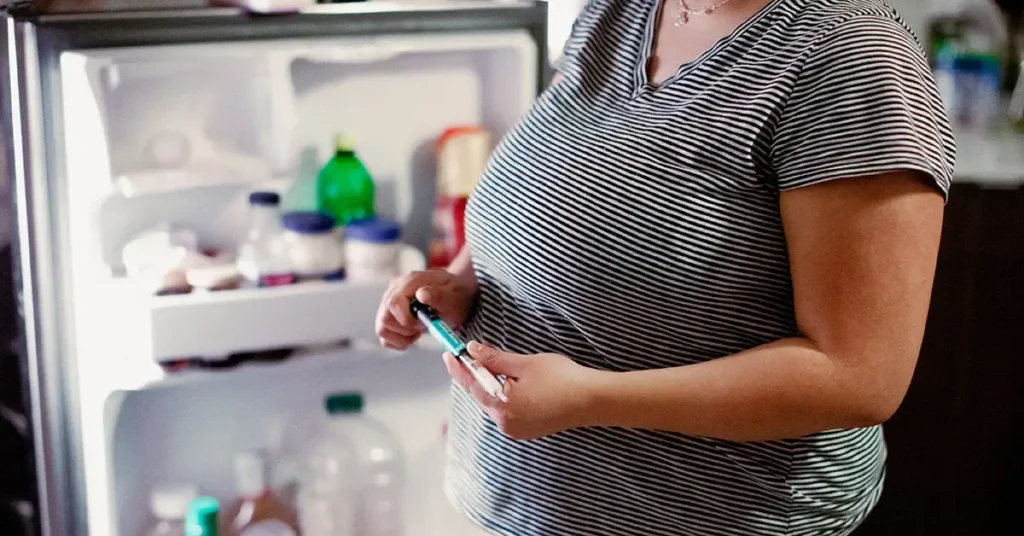
Factors Affecting The Shelf Life Of Refrigerated Medicine
Refrigeration is an essential aspect of storing medicine to maintain its shelf life. When refrigerated, most types of medicine can remain safe and effective for extended periods. However, several factors can affect the shelf life of refrigerated medicine.
We will discuss the factors that contribute to the shelf life of refrigerated medicine and how to maximize its longevity.
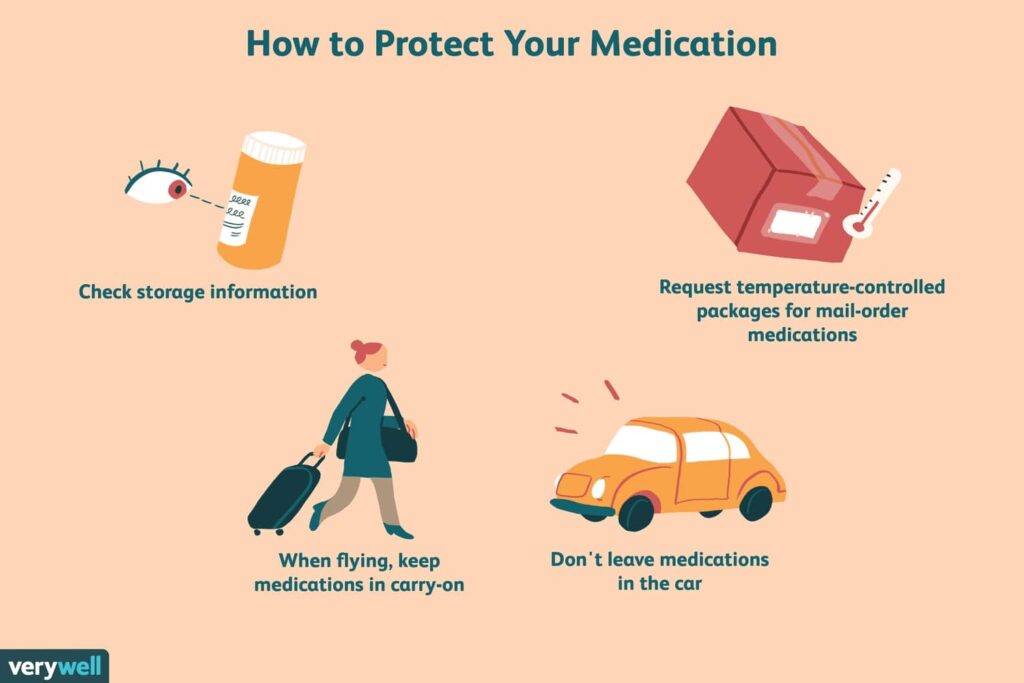
Temperature
The optimal temperature for keeping medicine cold is 2-8°c (36-46°f). However, if the medicine is exposed to fluctuating temperatures, it can cause irreversible damage to the chemical structure of the drug.
Therefore, ensure that the refrigerator temperature remains constant within this range to maintain the potency of the medicine.
Here are some key points:
- Keep the refrigerator temperature at 2-8°c (36-46°f).
- Fluctuating temperatures can damage the medicine.
Humidity
High humidity can shorten the shelf life of medicine, especially when it comes to pills and capsules. The ideal relative humidity for storing refrigerated medicine is between 30% to 60%. Higher levels of humidity can cause the medication to absorb moisture, leading to degrading or altering the potency of the medicine.
Here are some key points:
- The ideal humidity level for storing refrigerated medicine is between 30% to 60%.
- Higher humidity levels can cause the medication to absorb moisture, leading to degradation.
Exposure To Light
Some medicines, including those in the form of solutions and syrups, can be damaged when exposed to light. Light exposure can lead to chemical changes that can reduce the potency of the medicine.
Therefore, it is essential to place the medicine in a dark or opaque container to protect it from light.
Here are some key points:
- Light exposure can damage some types of medicines.
- Place the medicine in a dark or opaque container to protect it from light.
Various factors can affect the shelf life of refrigerated medicine, including temperature, humidity, and exposure to light. Therefore, it is crucial to store your medicine correctly to increase its potency and shelf life.
By following the guidelines mentioned, you can ensure that your medication remains safe and effective for as long as possible.
Understanding The Expiration Date
Prescription medications always come with an expiration date, which is usually printed on the label. Many people assume that it is unsafe to consume refrigerated medicine after the expiry date. However, the truth is far more complicated.
What The Expiration Date On The Label Means?
The expiration date printed on the label of your medication is the date by which the manufacturer guarantees its safety and efficacy. It is based on the results of clinical trials, which test the drug’s stability and effectiveness over time under ideal conditions.
The expiration date can usually be found on the container, packaging, or label of the medication.
However, it is essential to note that the expiration date is only valid if the medication has been stored according to the manufacturer’s recommendations.
Therefore, it is critical to read and follow the storage instructions on the packaging to ensure the medication remains effective and safe to consume until its expiry date.
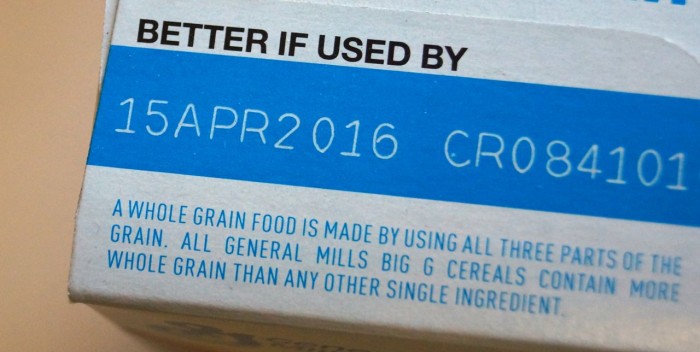
How The Expiration Date Is Determined?
The expiration date of medications is determined using various factors, such as chemical stability and shelf life testing in ideal storage conditions like controlled temperature and humidity. Additionally, the potency of the drug may decrease over time, making it less effective than intended.
As a result, the manufacturer calculates an accurate expiration date by combining various stability and potency tests.
It is also important to note that if a medication has been stored at an inappropriate temperature or humidity, the medication’s potency and effectiveness can deteriorate.
Therefore, medicine efficacy can be reduced before the expiry date. Avoid storing the medication in direct sunlight, in a car, or any other location that creates a moist environment.
Understanding how to read and interpret the expiration date on prescription medications can help ensure that you consume only safe and effective medication. Always follow the manufacturer’s instructions for storage and transportation to ensure your medication remains potent and effective for the entire duration of its expiry date.
By taking these precautions, you can help ensure the medication continues to be effective even after the expiry date.
Signs Of Spoilage
Refrigeration has been an essential part of modern healthcare, keeping medicines and pharmaceuticals safe, effective, and free from spoilage. However, we may sometimes unknowingly leave our medicine out of its designated storage area. That poses a question: how long can refrigerated medicine be left out?
In this section, we will focus on the subheading “signs of spoilage” and discuss how to identify if your medicine has spoiled.
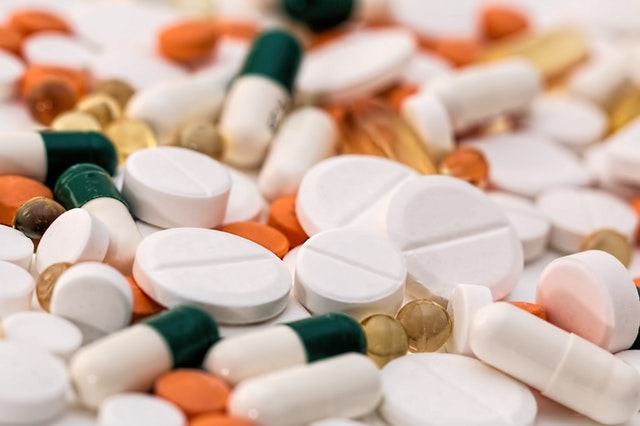
List Of Signs To Look For When Determining If Medicine Is Spoiled
Determining if the medicine has spoiled may seem challenging, but identifying the signs early helps prevent harmful outcomes. Here are some signs to look for:
- Changes in color, consistency, or smell: Some refrigerated medicines contain active ingredients that would change their color or consistency when exposed to different temperatures. If your medicine has turned into a different color from when you first purchased it or has become thick or clumpy, you should discard it. Moreover, if your medicine smells sour or unusual, it is also a sign of spoilage.
- Presence of mold or unusual particles: Medicine should always be free from mold or other types of foreign particles. If there are any peculiarities present in your medicine or discoloration in the packaging, it is vital to dispose of this medicine immediately.
Aside from these signs, it’s also important to check the expiry date of the medicine. Medicines past their expiration date are likely to have lost their potency and may be harmful to consume. If you are unsure about the state of your medicine, you should always consult your pharmacist or physician.
This is why it’s essential to properly store our medicine and be mindful of its expiry dates. By doing so, we can avoid the harmful effects of consuming medicine that has gone bad and ensure the best results from our medication.
Best Practices For Storing Refrigerated Medicine
Refrigerated medicine is essential for treating various medical conditions. However, to ensure the medicine’s efficacy, it is crucial to store it properly. If refrigerated medicine is left out of the storage environment for an extended period, it can lose potency and become less effective or even dangerous.
In this blog post, we will focus on the subheading best practices for storing refrigerated medicine. We will focus on the importance of following the manufacturer’s instructions, tips for storing medicine properly, using a thermometer to monitor the temperature, and keeping the medicine away from direct sunlight.
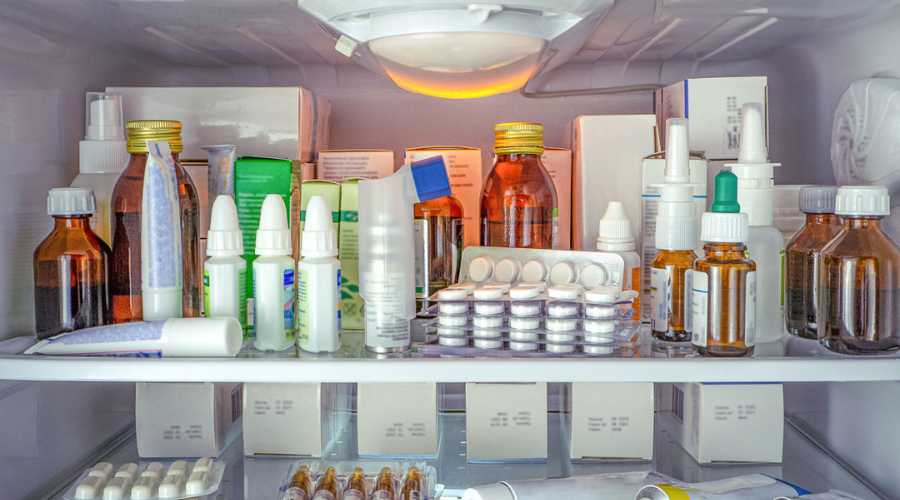
Importance Of Following The Manufacturer’s Instructions
The manufacturer’s instructions for storing refrigerated medicine should always be followed. This ensures that the medicine maintains its potency and remains safe for consumption. Some medications require specific storage conditions, such as a particular temperature range or avoiding sunlight exposure.
By following the manufacturer’s instructions, you can prolong the medicine’s lifespan and effectiveness.
Tips For Storing Medicine Properly
Here are some tips for storing your refrigerated medicine properly:
- Store medicine in its original packaging and check the expiration date regularly.
- Make sure the refrigerator’s temperature range is between 2-8°c (36-46°f).
- Keep the refrigerator organized to avoid confusion among different medications.
- Avoid overcrowding the refrigerator, which can lead to an increase in the temperature range and affect the medication’s potency.
- Keep any opened medication in airtight containers and make sure to label them with the date of opening.
Use A Thermometer To Monitor The Temperature
To ensure that the refrigerator’s temperature is within the recommended range, it is essential to use a thermometer. Place the thermometer in the refrigerator and check the temperature regularly. If the temperature is outside of the recommended range, adjust the thermostat or seek professional help.
Keep The Medicine Away From Direct Sunlight
Exposure to direct sunlight can affect the medicine’s potency, and in some cases, it can even lead to a chemical reaction. To avoid this, store refrigerated medicine away from windows or other areas where it may be exposed to sunlight.
If you need to transport refrigerated medication, use a cooler bag or insulated case to protect it from sunlight exposure.
Proper storage for refrigerated medicine is essential to ensure the medication’s effectiveness and safety. Following the manufacturer’s instructions, storing the medication correctly, using a thermometer to monitor the temperature, and avoiding sunlight exposure are crucial steps to prolonging your medicine’s lifespan.
Always remember to consult your physician or pharmacist before making any changes to your medication’s storage or usage.
How to store your refrigerated medication during a power outage?
FAQs: How Long Can Refrigerated Medicine Be Left Out?
How Long Can Refrigerated Medicine Be Left Out?
Refrigerated medicine should not be left out for more than two hours. When they reach room temperature, they can lose their effectiveness and can even become harmful. It is important to keep medicine refrigerated at all times unless it’s specifically stated that it can be stored at room temperature.
Can You Still Use Refrigerated Medicine After It’S Been Left Out?
It’s not recommended to use refrigerated medicine that has been left out for more than two hours. It loses its effectiveness and potency, which may not provide the desired results or the intended relief.
How Can You Tell If Refrigerated Medicine Has Gone Bad?
Medicine that has been compromised will have a change in texture, color, or smell. Check the expiration date, and if it’s expired or close to being expired, dispose of it properly. If the medicine looks, smells, or tastes bad, it should be discarded.
Can You Still Use Refrigerated Medicine After A Power Outage?
If the power has been out for less than two hours, medicine that was refrigerated should be fine as long as it didn’t reach room temperature, and there is no change in texture, color, or smell. If it’s been more than two hours, dispose of the medicine properly, and do not use it.
How Should You Store Refrigerated Medicine?
Refrigerated medicine should be stored at a temperature between 36°f to 46°f (2°c to 8°c) in an airtight container. Keep a thermometer in the refrigerator to ensure it stays at the right temperature and do not store medicine in the door as it’s exposed to temperature changes.
Conclusion
Overall, the duration that refrigerated medicine can be left out is dependent on various factors such as the type of medication, storage conditions, and length of time it has been out of the fridge. As a general rule, it is advisable to put any medicine that requires refrigeration back in the fridge within two hours of removing it.
However, it is important to carefully read the instructions on the label or consult a healthcare provider to get specific guidance on how to store medication properly. Failure to adhere to storage instructions can lead to decreased medication efficacy, loss of potency, or even severe side effects.
It’s crucial to always prioritize your health and safety when it comes to taking medication. Proper storage, along with taking the right dosage at the appropriate times, can help ensure that your medicine works as intended, keeping you healthy and on the path to recovery.
